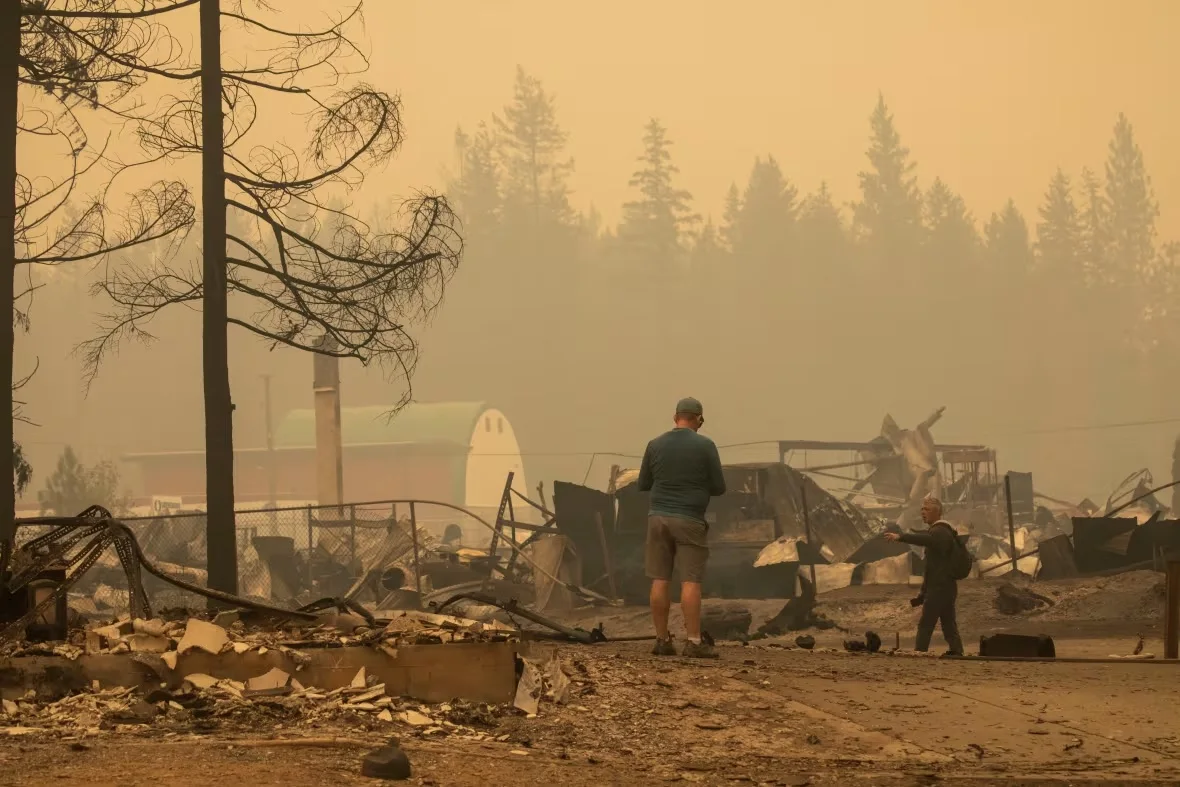
A shop and home that were burnt by wildfires in Scotch Creek, B.C., are pictured on Friday, Aug. 18, 2023. That same month, the Salmon Arm Roots and Blues Festival about 25 kilometres south of the fire, cancelled a portion of its event, due citing concern for the safety of attendees, volunteers and the community as a whole. (Ben Nelms/CBC)
“We’re really pre-occupied with the way weather is becoming more and more severe over time — everything from cancelling events to having to evacuate sites, to having to elevate and escalate emergency preparedness plans,” Benjamin said. “All of these things are things that festivals take extremely seriously.”
She said the live music industry adds $11 billion to Canada’s GDP annually and creates more than 100,000 jobs, but many organizations and festivals are operating close to the financial edge and it can be impossible to recover from a cancellation.
“There is an economic aspect, there’s a cultural aspect and certainly there’s a social aspect, and for all of these reasons and others, we need to be very preoccupied with the impact of severe weather on outdoor concerts and festivals,” Benjamin said.
She said there are organizers reacting to weather events and then there are those who are adapting to climate change.
The study notes an example in B.C., the Salmon Arm Roots and Blues festival in the province’s Interior. Benjamin recalled attending the festival several years ago — a particularly smokey experience due to wildfires in the area.

